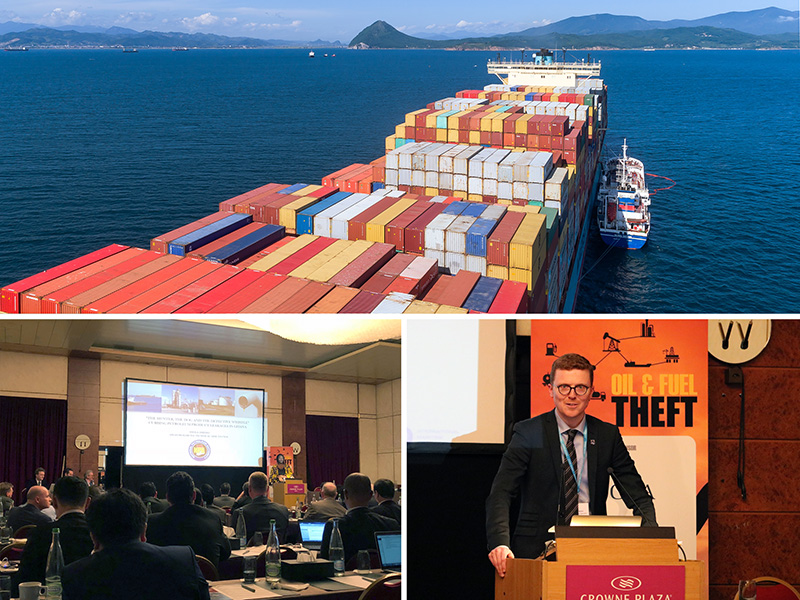Oil and fuel theft is a major, global challenge in the maritime industry, with potential widespread repercussions, ranging from ecological damage to depriving governments of customs and tax revenues. IMO participated in the inaugural Oil & Fuel Theft conference (18-19 April) in Geneva, Switzerland. The conference brought together governments, oil majors, energy industry companies and national security stakeholders to understand and shed light on the scale of the problem and examine ways to combat this issue.
Oil and fuel theft typically takes place in the maritime domain, with oil tankers accounting for a fourth of global trade. But law enforcement control over vast maritime spaces is often hindered by scarcity of resources. Largely ignored forms of hydrocarbons crime pose a very real threat to regional and global stability, security, and prosperity. Downstream oil theft is not merely an end in itself; it is also a means to the criminal ends of terrorist groups, organized crime syndicates, and violent insurgents which must be addressed as a global issue.
IMO's Henrik Madsen addressed the conference during a session on Maritime Piracy: Measures to ensure the security of oil and fuel assets. Mr. Madsen highlighted IMO’s maritime security initiatives and its capacity-building work in regions such as the Gulf of Guinea, where the organization supports the implementation of the Code of Conduct concerning the repression of piracy, armed robbery against ships, and illicit maritime activity in west and central Africa.
The conference was organized by Defence IQ in partnership with the cantonal government of Geneva.
